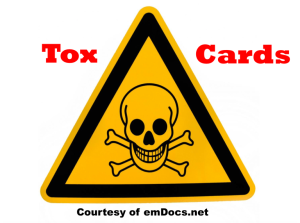Here’s another case from Medical Malpractice Insights – Learning from Lawsuits, a monthly email newsletter for ED physicians. The goal of MMI-LFL is to improve patient safety, educate physicians, and reduce the cost and stress of medical malpractice lawsuits. To opt in to the free subscriber list, click here.
Chuck Pilcher, MD, FACEP
Editor, Med Mal Insights
Major hemorrhage after I & D of axillary abscess
Must an EP use POCUS on every abscess? Not all bad outcomes are the result of negligence.
Facts: An adult male undergoes a routine I & D of an axillary abscess in the ED with less than 5cc of pus returned. The wound is lightly packed, and he is discharged. He sees his PCP for follow-up the next day. Little drainage and persistent swelling and pain is noted. The PCP elects to extend the I & D to improve drainage, re-packs the wound, and advises the patient to return the following day. He continues to have pain and swelling, so the PCP again extends the incision, resulting in  30cc of bright red blood. He is discharged but returns 25 minutes later with major hemorrhage, blood all over his car, lightheadedness, and pallor. VS are stable, and the bleeding is controlled with direct pressure. EMS is called and he is transported back to the original ED. A general surgeon is consulted, and a major venous bleeder is ligated. He recovers uneventfully over the next few weeks but consults an attorney. He refers the chart to his consulting physician expert to determine if the bleeding was the result of negligence on the part of either the EP or PCP.
30cc of bright red blood. He is discharged but returns 25 minutes later with major hemorrhage, blood all over his car, lightheadedness, and pallor. VS are stable, and the bleeding is controlled with direct pressure. EMS is called and he is transported back to the original ED. A general surgeon is consulted, and a major venous bleeder is ligated. He recovers uneventfully over the next few weeks but consults an attorney. He refers the chart to his consulting physician expert to determine if the bleeding was the result of negligence on the part of either the EP or PCP.
Plaintiff: I think the doctor did something wrong. It cost me a lot of time off work. I got bills for 2 ED visits, 3 PCP visits, EMS, and a surgeon. The ED physician was negligent in not using POCUS. I don’t think this should have happened. I want to be compensated.
Defense: The ED physician felt the abscess was “ripe” and made a judgement call that POCUS was not needed. The PCP made a judgement call that the abscess incision needed to be extended. He did not have access to POCUS. Bleeding is a known complication of an I & D in a vascular area. Once it occurred, appropriate steps were taken to stabilize the patient. No blood transfusion was required. The PCP continued to provide post-ligation care with the assistance of a general surgeon colleague in the same clinic. Although healing was prolonged, there were no apparent sequelae. The outcome was unfortunate but not negligent.
Result: The attorney discussed the expert’s opinion with his client, and no lawsuit was filed. Damages were minimal, limited to time loss, inconvenience, and the costs of an ED visit with a surgeon. In such cases, writing off additional costs is appropriate when that option is available.
Takeaways:
- Doing it right the first time is best, but we’ve all incised abscesses and gotten less pus than we expected.
- POCUS can be exceptionally helpful in identifying the best target – or demonstrating the lack of actual pus. In the latter case, antibiotics and follow-up are appropriate.
- Sometimes complications happen even when we do a procedure correctly – or make a sincere attempt to do so. In this case a vein was cut inadvertently. It shouldn’t have happened, but that’s a known potential complication, not negligence.
- If something unexpected happens, showing empathy and apologizing is the right thing to do (though recent research indicates it doesn’t reduce the incidence of malpractice lawsuits). In most states an apology is not allowed to be considered an admission of guilt or substandard care in a subsequent lawsuit. The chart notes of the PCP and his staff reflect caring and compassion.
- When medical negligence is found, most insurers, definitely Medicare and Medicaid, expect to be reimbursed. They don’t pay for care that a court determines to be sub-standard.
- Pursuing a med mal case, even a simple one, costs tens of thousands of dollars or more. Unless damages exceed the cost of pursuing the case, a plaintiff attorney will rarely take it.
- If the defendant’s insurers find the claim to be weak, they will do everything possible to drag out the resolution until the plaintiff and their attorney give up. Remember, defense attorneys are paid by the hour. Plaintiff attorneys are usually not paid unless they win.
- Good plaintiff attorneys depend on honest and ethical experts to advise them – and follow their advice. They can’t afford not to. [Editor’s Note: In my own work with plaintiff attorneys, nearly 70% of my reviews resulted in a lawsuit not being filed./cp]
Reference:
Burgin CM, Morrow DS. Utility of POCUS in skin and soft tissue infection. J Urgent Care Med. June 2020. Available at: https://www.jucm.com/utility-of-pocus-in-skin-and-soft-tissue-infection/.
[Editor’s Note: All references refer to POCUS as “useful”; I found none that claim it is or should be standard of care./cp]








